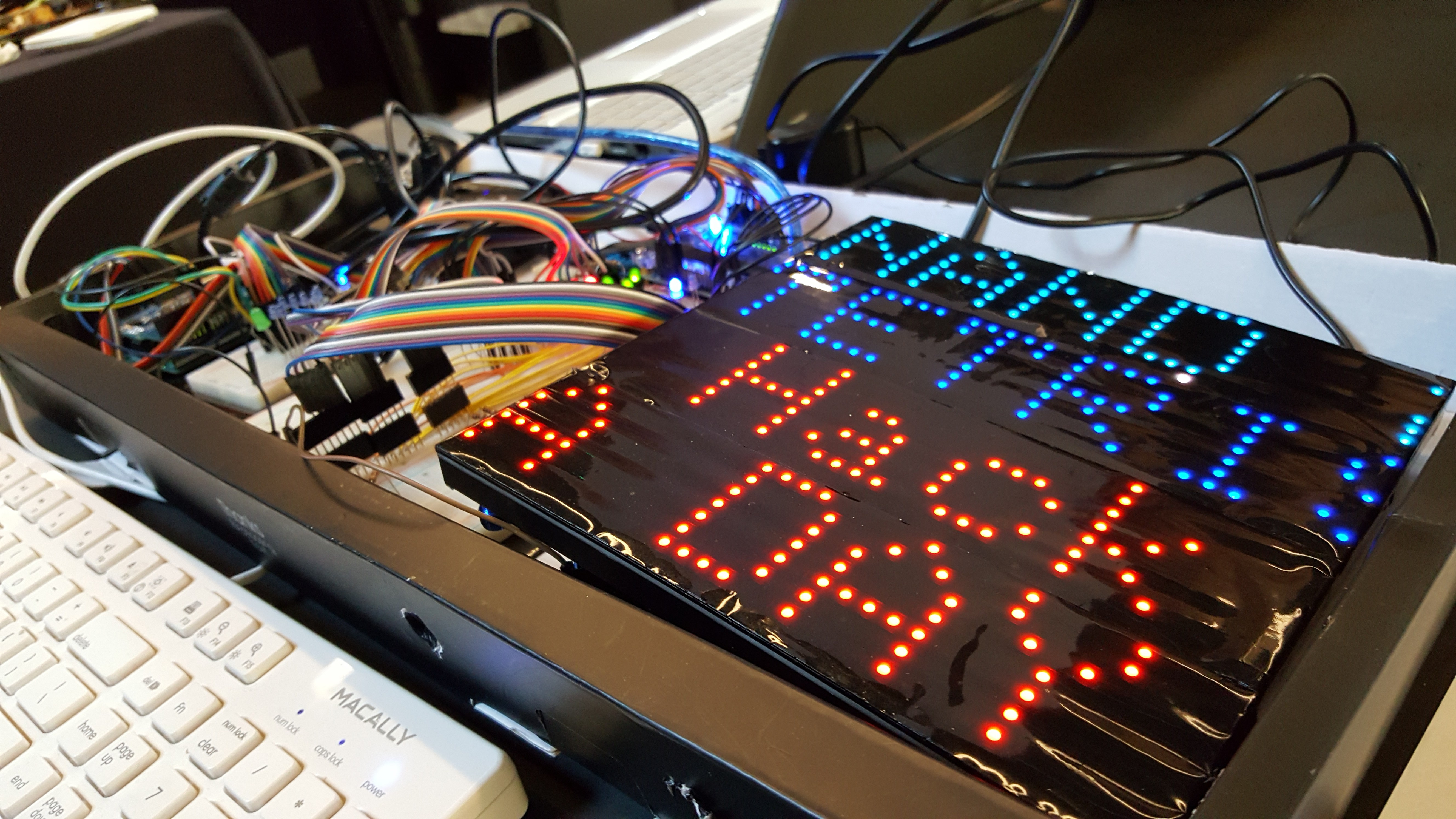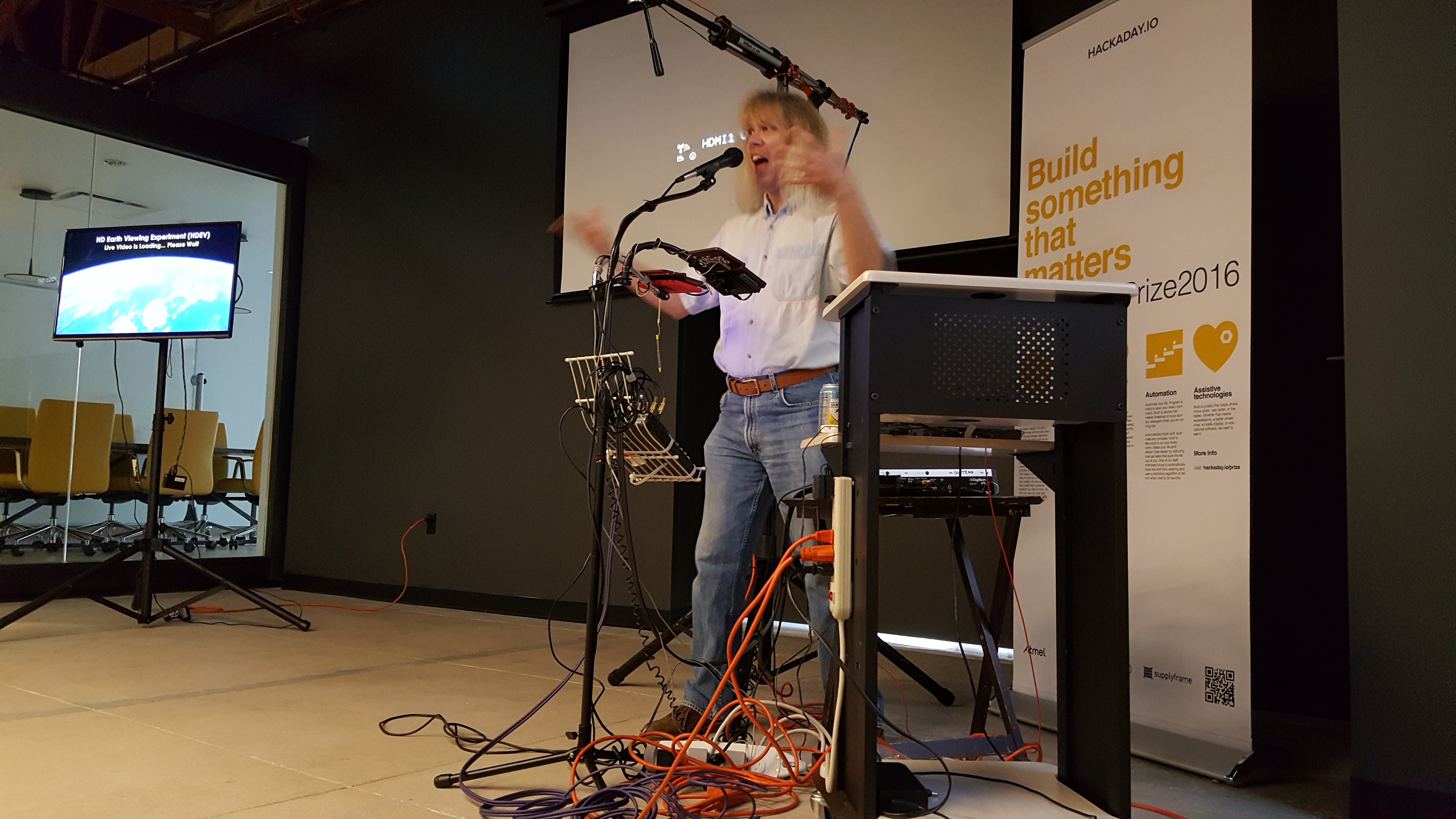Thank you to all who joined us Tuesday, May 31st at the Supplyframe Design Lab to kick off the Citizen Science round of the 2016 Hackaday Prize with two great talks on space science and tech, delicious free food and time to share your own hacks and projects! Meetup event page: http://www.meetup.com/Hackaday-Los-Angeles/events/231176072/







FEATURED GUEST SPEAKERS:
• ISS-Above: Space, Tech and Education with Liam Kennedy, Inventor of ISS-Above
• Making Titan Lakes in the Lab: Prebiotic Implications with Dr. Morgan Cable, NASA JPL Imaging Spectroscopy Technologist and Cassini Assistant Project Science Systems Engineer

MORE ABOUT OUR SPEAKERS:
Liam Kennedy is CEO of ImageBEAM Inc. and inventor of ISS-Above, an electronic device that brings the International Space Station (ISS) to your TV. (Read his full bio here.)
ISS-Above: Space, Tech and Education: The International Space Station (ISS) is the only human-habitable environment off the surface of the Earth. It's also one of the biggest single human scientific achievements. ISS-Above is a single board computer device (using Raspberry Pi) that presents information about the ISS, and it has been shipped to over 1,000 locations around the world. Bill Nye the Science Guy described ISS-Above as his "latest obsession", and it is being used in schools, homes and public spaces to raise the public's awareness about space exploration.
Dr. Morgan Cable works in the Instrument Systems Implementation and Concepts Section at the NASA Jet Propulsion Laboratory and she's also the Assistant Project Science Systems Engineer for the Cassini Mission, which has been exploring the Saturn system for over 10 years. (Read her full bio here.)
Making Titan Lakes in the Lab: Prebiotic Implications: Titan is a unique world - a moon of Saturn, it hosts a massive inventory of organic molecules and serves as a prebiotic laboratory on a planetary scale. In some ways it is similar to Earth; it has a thick atmosphere, dunes, clouds, rain and lakes. And yet it is very different - it is too cold for water to be liquid; instead the liquid phase on Titan is methane and ethane! In the Cryogenic Chemistry Lab at JPL, we make mini-Titan lakes to study the fascinating chemistry that can occur in these exotic solvents. We have discovered unique chemical structures that give us clues to how organic molecules are produced, stored and transported on Titan. This work is important in understanding the potential for life, both 'life as we know it' and 'life as we don't know it'.
Discussions
Become a Hackaday.io Member
Create an account to leave a comment. Already have an account? Log In.